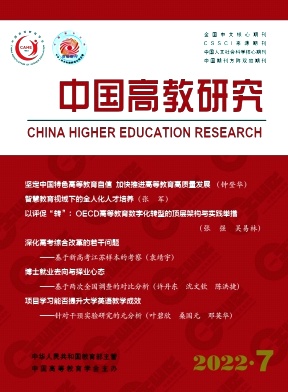Special Issues
ZHANG Jun
New generation information technologies and digital innovations have brought unprecedented opportunities to the development of higher education. The technology-enabled smart education paradigm today, is an inevitable trend, fueled by the COVID-19 pandemic and ease of use of technologies. It is at its early stages, with exponential expected growth in the near future. On this backdrop, we aim to transform higher education in China, by analyzing potential future tendencies of smart education, followed by identifying bottlenecks and challenges of current educational developments influencing the future of smart education. We then propose a novel scheme for adaptive smart education centered around the concept of holistic cultivation of the mind. This can be viewed as a modern sustainable higher-education reform focused on value creation, knowledge cultivation and practical innovation, for the purpose to realize “Activation” of the mind. This “Activation” occurs at the interplay between social education, diffusion of knowledge, and wisdom of teaching and learning. “Activation” is operationalized by erecting the four pillars of a literacy graph, a knowledge graph, an abilities graph, and a quality graph, which united, would support the new higher-education ecology and empowered education. The new ecology would foster a social environment that is conducive to the derivation of knowledge so as to promote comprehensive changes in the content, means, modes and systems towards the cultivation of human-centric talents. Consequently, the wisdom process of contemporary higher education would entail seeding wisdom in people, integrating wisdom in campus, and strengthening wisdom in country.
